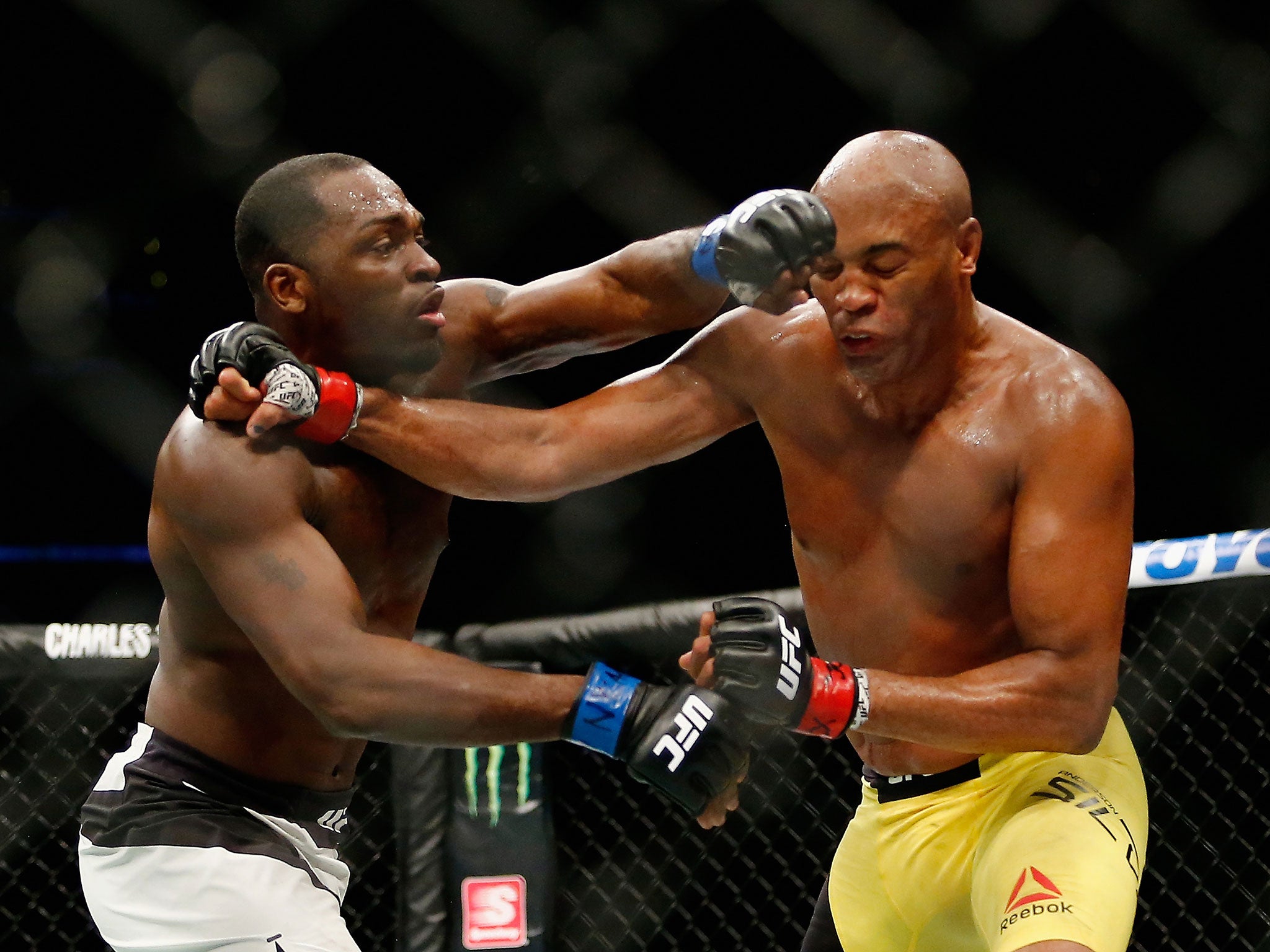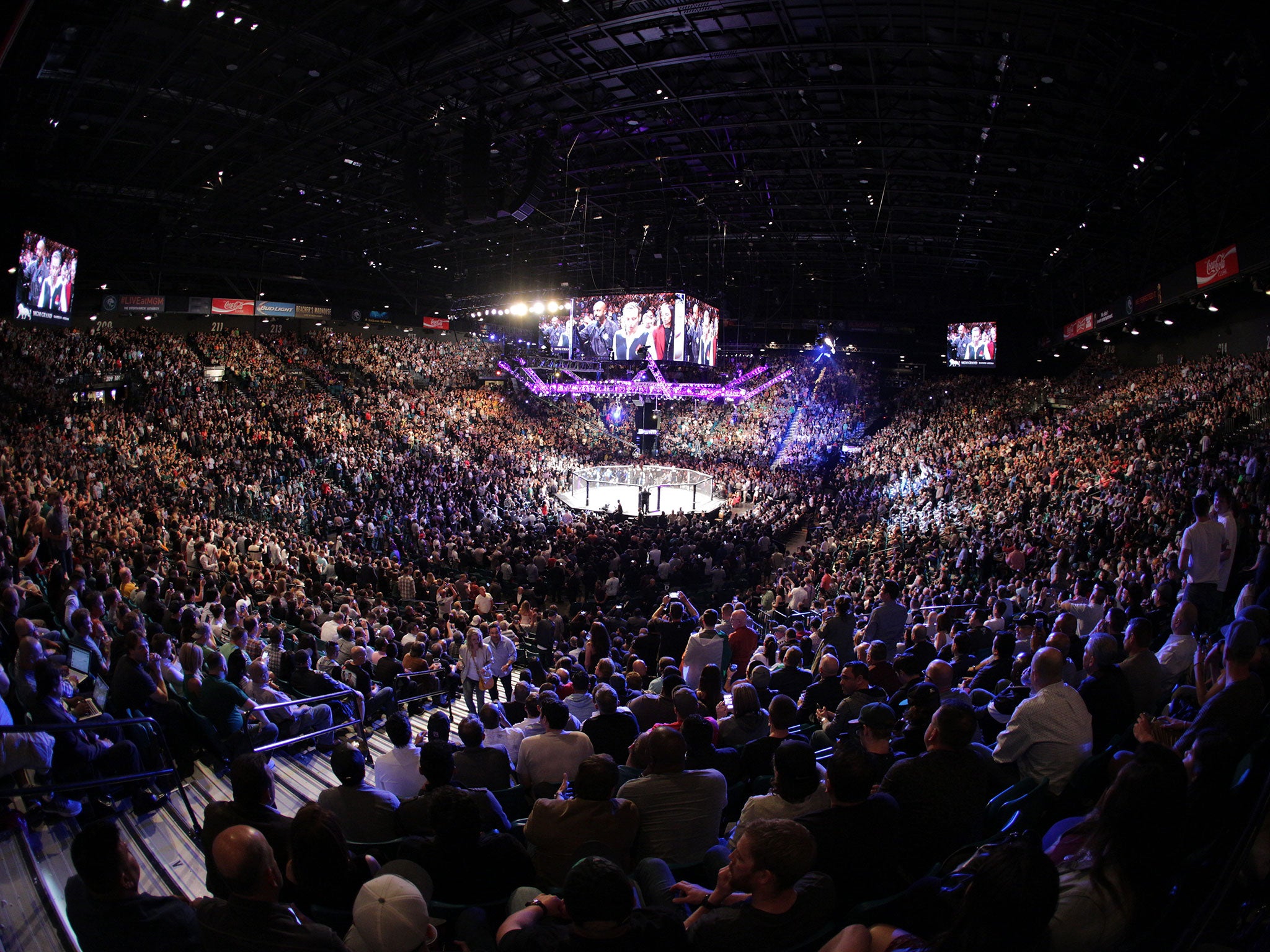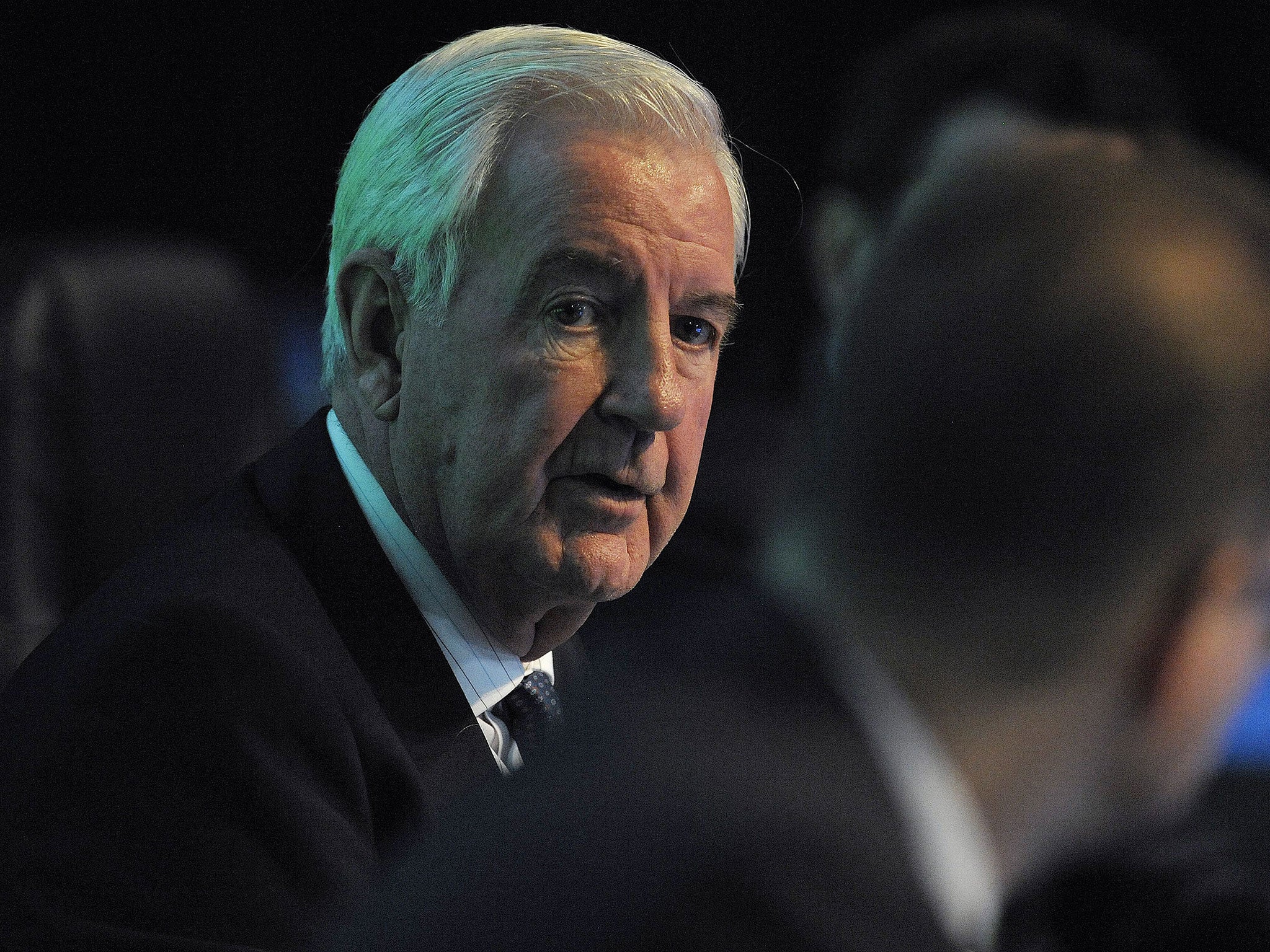How Wada closed shop is damaging sport and the conspiracy against MMA
There is still no clear evidence why the World Anti-Doping Agency refuses to recognise the Mixed Martial Arts Federation

Your support helps us to tell the story
From reproductive rights to climate change to Big Tech, The Independent is on the ground when the story is developing. Whether it's investigating the financials of Elon Musk's pro-Trump PAC or producing our latest documentary, 'The A Word', which shines a light on the American women fighting for reproductive rights, we know how important it is to parse out the facts from the messaging.
At such a critical moment in US history, we need reporters on the ground. Your donation allows us to keep sending journalists to speak to both sides of the story.
The Independent is trusted by Americans across the entire political spectrum. And unlike many other quality news outlets, we choose not to lock Americans out of our reporting and analysis with paywalls. We believe quality journalism should be available to everyone, paid for by those who can afford it.
Your support makes all the difference.The level of accountability and transparency in sports management has recently been heavily under fire: from the Fifa corruption scandal to the International Olympic Committee’s handling of alleged Russian state doping, from questionable officiating in Olympic boxing to ticket scams operated by Olympic leaders, the inventory of malpractice seems endless. In these cynical, post-truth times, does this even matter?
The repercussions reach beyond ideology and past the well-packaged dreams, vision, values and benefits attributed to sport. Grossly significant is the huge amount of global tax-payer money that recognised sports receive, whether through the governmental financing of the World Anti-doping Agency [Wada] and its National Anti-doping counterparts, or through bodies such as Sport England, UK Sport and their equivalents worldwide.
The International and National Olympic Committees might boast financial independence, but the Olympic talent pool is developed through publicly funded sports from the grassroots up, with risks and liabilities offset through further public support. In addition to this, only sports that are recognised by gate-keepers within the official structures are eligible for ring-fenced government funding.
And so, amidst the bigger scandals that have been cascading down on the sporting world of late, there endures a quieter yet fundamental question: how does a sport or a sports body come to be formally approved by the IOC? The journey of the young but phenomenally popular Mixed Martial Arts provides a telling case study.
First, attaining membership to feeder organisation, SportAccord, is a usual requirement for any international sports governing body seeking recognition from the IOC. To be accepted by SportAccord, an organisation must demonstrate that it meets certain governance criteria and must also be a signatory to the Wada code.
Wada’s stated vision is of a “world where all athletes can compete in a doping-free sporting environment.” The anti-doping body claims to be “impartial, objective, balanced and transparent” and “observe the highest ethical standards and avoid improper influences.” Practically, membership to Wada is more than a badge of honour, gaining access to otherwise costly resources including the Anti-Doping Administration & Management System (Adams) – a web-based database management software that enables implementation of out-of-competition drug testing. Acceptance into the club, therefore, has a concrete impact on athlete safety and a sports organisation’s ability to ensure it.
In 2016 the International Mixed Martial Arts Federation (IMMAF) submitted its application to Wada. At the time the IMMAF CEO, Densign White, stated: “IMMAF is already meeting Wada criteria through its current anti-doping program, and is, in fact, pushing boundaries in its stringency. We feel confident in our application and see no valid reason why it should not be accepted.”

However, in his end of year statement, the IMMAF CEO struck a different tone as he expressed his disappointment at IMMAF’s rejection. The explanatory email received by the MMA governing body read: “As outlined in our previous correspondence, in light of the policy adopted by Wada’s Executive Committee in 2010 to avoid any potential or actual conflict between applicants and current signatories to the World Anti-Doping Code, Wada’s management contacted the International Federation Umbrella Organisations in relation to IMMAF’s request to become a signatory to the Code.
MMA has been publicly vilified by judo, with the EJU terming MMA a ‘spiritual contamination’ of martial arts and French Judo’s president blasting it as a “haven for jihadists”
"Wada has now been informed by the IF Umbrella Organisations that this matter was discussed by them earlier this month, including at the SportAccord Council meeting and that their decision was that WADA should not accept IMMAF as a new signatory to the Code. We are therefore unfortunately not in a position to satisfy your request.”
It comes as no surprise that MMA has its enemies. It has been publicly vilified by judo, with the European Judo Union terming MMA a ‘spiritual contamination’ of martial arts and French Judo’s president blasting it as a “haven for jihadists”. British Judo’s attempted partnership with the UFC for the 2015 European Judo Championships saw its rights revoked by the EJU just eight weeks out and the event moved to Baku. Judo has also mounted a successful lobby against MMA in France with the Sports Minister issuing a ban on it last year. The decree came in spite of a cross-parliamentary census into the sport that had returned a positive verdict, and IMMAF is currently challenging the ban in the French law courts.

Speculatively, there are other sports bodies that could also be contesting MMA’s place, but no further information, advice or reason has been given to the IMMAF.
In an era reeling still from the global recession and public funding cuts, is it acceptable that access to global anti-doping resources can be seemingly guarded by an unaccountable, old boys’ network? Can there really be no requirement for transparency or fair and open process? This is surely a double-blow: not only would this seem to decry an unregulated use of public funds, but moreover it undermines the safety of sport participants at the grassroots – the very people that it should be there to protect. Safety is not only directly undermined by a lack of resources to fully implement anti-doping process and such like, but also due to a knock-on effect that keeps doors closed to insurance, medical expertise and the engagement of professionals to develop safeguarding structures. Lack of recognition moreover keeps sponsors, broadcasters and other funding bodies at arm’s length.
In light of the exponential growth of MMA that now sees unlicensed and unregulated gyms and promotions popping up across small cities and towns world-over, surely there is a duty to recognise the sport and to safeguard its growing number of, largely young, participants – including children.

But with International Federation Umbrella Organisations and affiliate bodies operating in such a self-affirming context, it is perhaps inevitable that they should have engendered so much skulduggery and sleaze of late.
Meanwhile, a new organisation, the Sport Integrity Global Alliance, was launched in London last month. With endorsement from United Nations Secretary General, António Guterres, and support from an impressive host of international sports entities, SIGA’s mission is for improved accountability, transparency and integrity in sports governance. With the further backing of large financial players that include ICSS, Dow Jones, World Bank, MasterCard, Deloitte, and PWC, perhaps SIGA can generate the muscle and influence to call the sporting world to account.
Join our commenting forum
Join thought-provoking conversations, follow other Independent readers and see their replies
Comments